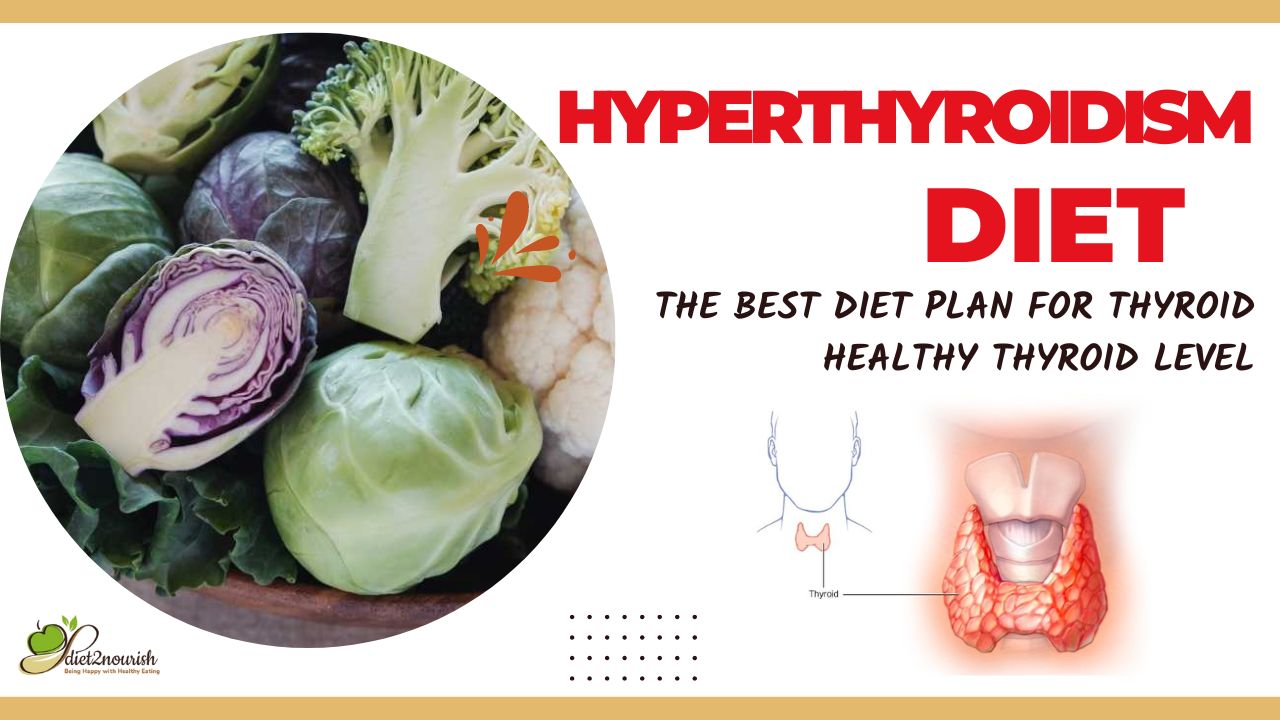Hyperthyroidism, also known as overactive thyroid, is a condition in which the thyroid gland produces too much thyroid hormone, which can cause a variety of symptoms such as weight loss, rapid heartbeat, and irritability. Diet plays an important role in managing hyperthyroidism, as certain foods can exacerbate symptoms while others can help alleviate them. Here is a diet chart for hyperthyroidism that can help manage the condition:
- Limit iodine intake: Iodine is an essential mineral that the thyroid gland uses to produce thyroid hormone. However, too much iodine can worsen hyperthyroidism symptoms, so it is important to limit iodine-rich foods such as seaweed, kelp, shrimp, and iodized salt.
- Choose low-glycemic index carbohydrates: Hyperthyroidism diet can increase the body’s sensitivity to insulin, which can lead to blood sugar imbalances. Choosing low-glycemic index carbohydrates such as whole grains, fruits, and vegetables can help stabilize blood sugar levels and prevent insulin spikes.
- Eat foods high in iron and calcium: Hyperthyroidism can increase the risk of osteoporosis, so it is important to consume foods high in iron and calcium to maintain bone health. Good sources of iron include red meat, poultry, fish, beans, and leafy green vegetables, while calcium-rich foods include dairy products, leafy green vegetables, and fortified foods.
- Increase protein intake: Protein is important for maintaining muscle mass and repairing tissue damage, which can be beneficial for individuals with hyperthyroidism who may experience muscle wasting. Good sources of protein include lean meats, fish, eggs, and legumes.
- Limit caffeine intake: Caffeine can exacerbate hyperthyroidism symptoms such as palpitations and anxiety, so it is important to limit or avoid caffeine-containing foods and beverages such as coffee, tea, and chocolate.
- Consume healthy fats: Healthy fats such as omega-3 fatty acids can help reduce inflammation and promote heart health. Good sources of healthy fats include fatty fish such as salmon and tuna, nuts, seeds, and olive oil.
- Eat small, frequent meals: Eating small, frequent meals throughout the day can help maintain steady blood sugar levels and prevent insulin spikes.
- Avoid goitrogenic foods: Goitrogenic foods such as broccoli, cabbage, cauliflower, and kale can interfere with thyroid function and exacerbate hyperthyroidism symptoms. While these foods can still be included in the diet, they should be cooked thoroughly to reduce their goitrogenic effects.
- Stay hydrated: Drinking plenty of water can help prevent dehydration, which can worsen hyperthyroidism symptoms such as fatigue and muscle weakness.
It is important to note that while diet can help manage hyperthyroidism symptoms, it should not replace medical treatment. If you suspect you have hyperthyroidism, it is important to consult with a healthcare professional for proper diagnosis and treatment. A registered dietitian or nutritionist can also provide personalized guidance and support in developing a nutrition plan that is appropriate for your individual needs and preferences.
